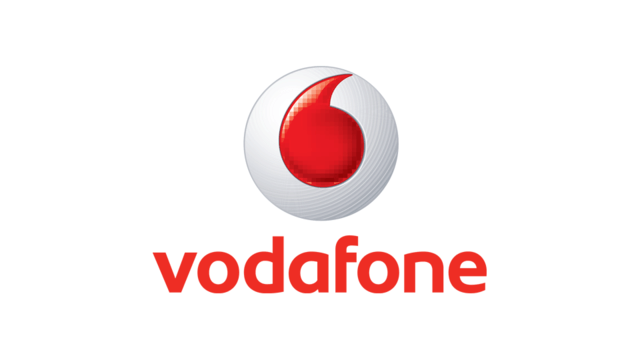Introduction to Stock Brokers
Are you ready to dive into the world of stock trading but unsure which broker to trust? The landscape of online investing is evolving rapidly, with new players emerging and established names adapting their offerings. Among these contenders, Zerodha and Angel One stand out as two prominent choices for investors looking to maximize value in 2025.
As you embark on your investment journey, choosing the right platform can make all the difference between success and frustration. With a myriad of features, fees, and services available at your fingertips, it’s crucial to weigh your options carefully. In this blog post, we’ll take a closer look at Zerodha vs Angel One — comparing everything from fees to customer service. By the end, you’ll have a clearer picture of which stock broker might just be your best ally in navigating the exciting world of online investing!
Overview of Zerodha and Angel One
Zerodha has made a name for itself as one of India’s leading discount brokers. Established in 2010, it revolutionized online trading with its user-friendly platform and zero brokerage on equity investments. Investors appreciate the simplicity and transparency Zerodha offers.
On the other hand, Angel One (formerly known as Angel Broking) has been a prominent player in the market since 1987. It combines traditional brokerage services with modern digital solutions, providing clients with robust tools and resources to manage their investments effectively.
Both platforms cater to diverse investor needs but take different approaches. Zerodha focuses heavily on technology-driven solutions, while Angel One emphasizes personalized customer support alongside tech features. The choice between them often comes down to individual preferences regarding service style and trading experience.
Comparison of Fees and Charges
When evaluating Zerodha and Angel One, fees and charges play a crucial role. Both platforms have adopted a discount brokerage model, which is appealing to many investors.
Zerodha offers zero brokerage on equity investments for delivery trades. For intraday trading and futures & options, they charge just ₹20 or 0.03% per trade, whichever is lower. This transparency in pricing has attracted a vast user base.
On the other hand, Angel One also provides competitive rates with no brokerage on delivery trades. Their intraday charges are similar at ₹20 per order. However, keep an eye out for additional fees that can vary based on specific services.
Understanding these fee structures helps you make informed decisions about your investment strategy and overall costs as you invest online. The choice between them may depend largely on your trading habits and preferences regarding cost efficiency.
Trading Platforms and Features
Zerodha and Angel One offer distinct trading platforms that cater to varying trader needs. Zerodha’s Kite is known for its sleek design and user-friendly interface. It provides advanced charting tools, comprehensive market data, and a seamless mobile experience.
On the other hand, Angel One boasts the Angel Broking app, which emphasizes simplicity while still offering essential features like real-time alerts and portfolio tracking. Its blend of educational resources further attracts novice investors looking to enhance their skills.
Both platforms support multiple asset classes including equities, commodities, and derivatives. This allows traders to diversify their portfolios effectively within one ecosystem.
Integrating technology with ease of use is vital for both brokers. Features such as goal-based investing in Zerodha or personalized recommendations in Angel One make each platform unique in promoting smarter investment strategies for users at every level.
Customer Service and Support
Customer service plays a crucial role in the stockbroker experience. Zerodha is known for its efficient support system, offering assistance through various channels like email, chat, and an active community forum. Clients often appreciate their quick response times.
Angel One, on the other hand, provides comprehensive customer support as well. Their helpline is available for immediate queries, while they also prioritize digital communication through social media platforms and emails.
Both brokers have dedicated teams to address user concerns promptly. However, some users report that Zerodha’s community engagement offers a unique advantage in finding solutions collaboratively.
When it comes to educational resources, both companies provide tutorials and FAQs aimed at enhancing user understanding. This proactive approach helps traders navigate challenges more effectively while investing online or managing their portfolios.
Effective customer service can significantly impact trading experiences with either broker.
User Reviews and Feedback
User feedback plays a crucial role in understanding the strengths and weaknesses of Zerodha and Angel One. Many users praise Zerodha for its intuitive platform and seamless online investing experience. The easy-to-navigate interface makes it appealing to both beginners and seasoned traders.
On the other hand, Angel One has garnered attention for its robust customer support. Users often highlight how quickly their queries are resolved, which enhances their trading journey.
Moreover, some reviews point out that while Zerodha offers lower fees, certain clients find Angel One’s additional features worth the extra cost. This highlights varying user priorities when choosing a stock broker.
Social media platforms also reveal diverse opinions on both brokers. Traders share tips, strategies, and experiences that contribute to community knowledge about these platforms, making it easier for new investors to make informed decisions while looking for the best stock broker options available today.
Additional Services Offered
Zerodha and Angel One both provide a range of additional services that cater to diverse trading needs.
Zerodha stands out with its educational initiative, Varsity. This platform offers investors free resources, tutorials, and articles covering everything from basic trading concepts to advanced strategies. It’s an ideal place for beginners eager to learn more about the stock market.
On the other hand, Angel One provides value-added services like investment advisory through their “Angel Broking” app. Users can access tailored recommendations based on market trends and personal goals.
Both brokers offer tools like margin funding and portfolio management services, enhancing the overall investing experience. Custom alerts and notifications help traders stay updated in real-time.
These extra features can play a crucial role in streamlining your investment journey while maximizing potential returns.
Pros and Cons of Zerodha vs. Angel One
Zerodha offers a user-friendly interface, making it ideal for beginners. Its low brokerage fees are a standout feature that attracts many investors.
On the downside, Zerodha’s customer service can sometimes be slow during peak trading hours. Additionally, some advanced features may require more time to understand fully.
Angel One shines with its extensive educational resources and tools tailored for novice traders. It also provides a robust mobile app experience for users on the go.
However, Angel One tends to charge higher brokerage fees compared to Zerodha. This could impact profitability for frequent traders looking to minimize costs.
Both platforms have their strengths and weaknesses. The best choice often depends on individual trading preferences and specific needs in the investment journey.
Making the Decision: Which is the Better Value?
Choosing between Zerodha and Angel One can significantly impact your trading experience. Both brokers offer unique features that cater to different types of investors.
Zerodha is a pioneer in the discount brokerage space, known for its user-friendly platform and minimal fees. It appeals largely to tech-savvy traders who appreciate advanced analytics and tools. The focus on education also makes it attractive for beginners.
On the other hand, Angel One provides a more traditional approach with extensive customer support services. Its robust research tools and personalized service might resonate well with those who prefer guidance along their investment journey.
Consider what matters most to you: low trading costs or comprehensive support? If you favor an innovative platform with educational resources, Zerodha may be your go-to choice. However, if you’re looking for reliable support and solid research options, Angel One could be worth exploring.
Both platforms have their strengths. Your decision should reflect your personal trading style and requirements as you navigate the exciting world of online investing in 2025.














